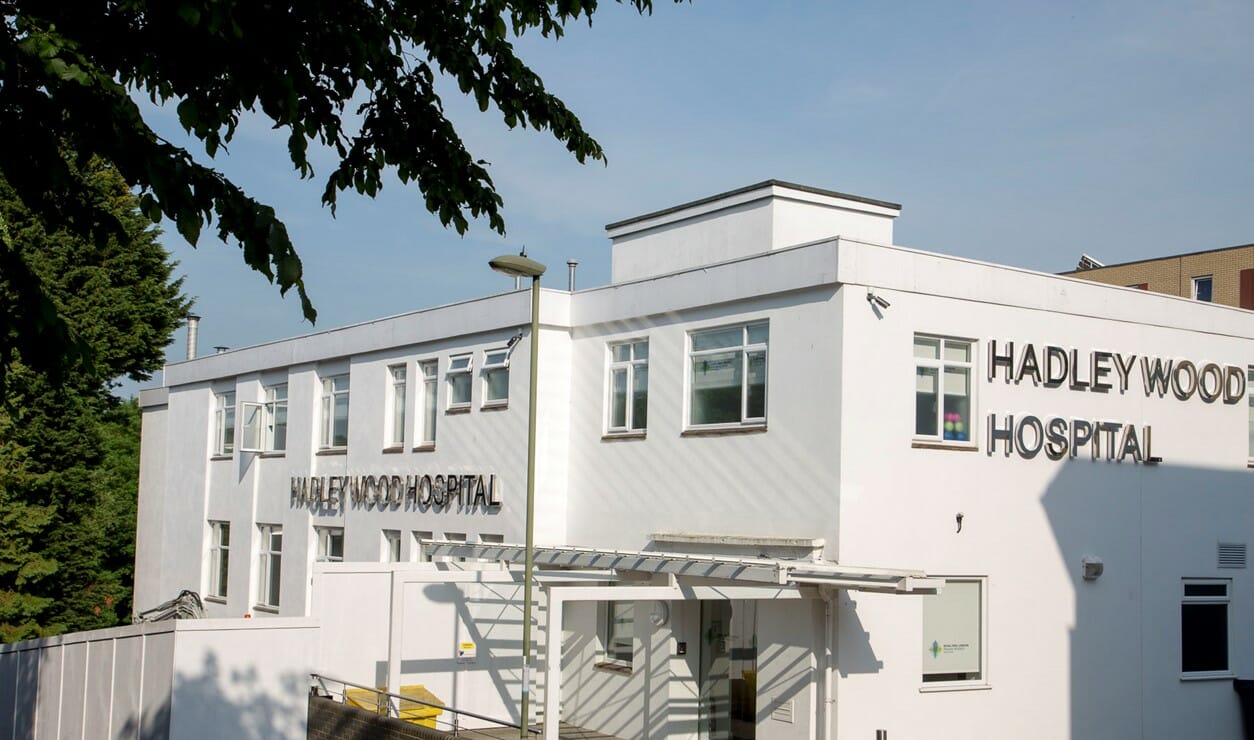Nasal polyps

Our private Nasal polyps services are provided at the Hadley Wood Hospital, High Barnet.
To find out more about our hospitals click here:
Nasal polyps are small fleshy growths that can develop inside the nose.
Symptoms
For some people, polyps can block the nose and cause ongoing problems such as a chronic runny nose or post-nasal drip (where fluid keeps dripping from the back of the nose into the throat resulting in a constant need to swallow), snoring, nosebleeds and a constant ‘bunged up’ feeling and difficulty breathing through the nose. Nasal polyps can also result in a reduced sense of smell and taste, and may be a factor in chronic sinusitis.
Treatment
They’re usually treated with a steroid nasal spray or drops, although these aren’t effective for everybody and can only be used for short-term periods. If nasal polyps are causing ongoing problems, surgery to remove them may be an option.
The procedure
The procedure is carried out under general anaesthetic, meaning you’ll be asleep while it happens. The surgeon will access the polyps through your nostrils, so no external incisions will be made, and use small cutting tools to remove the polyps. During the procedure, your sinuses may be washed out too, to clear any infection that might be present. Afterwards, it’s likely your nose will be packed with dressing, to help with bleeding, and sometimes small splints will remain in your nose to hold the area open while it heals. These can usually be removed after a week or two.
Most people are able to leave hospital the next day, although you won’t be able to drive for at least 24 hours, until the effects of the general anaesthetic have completely worn off. It’s likely you’ll be given a cream and nasal spray – your surgeon and nurses will explain how to use these, along with any additional aftercare advice you may need. It’s normal to experience some pain after surgery – painkillers will help – and your nose will feel blocked up for a while. Most people are able to return to work after a week.
A follow-up appointment will be arranged, so your surgeon can check how your nose has healed and if any further steroid treatment is required.
While most people experience significant improvements following surgery, it is still possible for polyps to grow back in the future.
Get in touch
